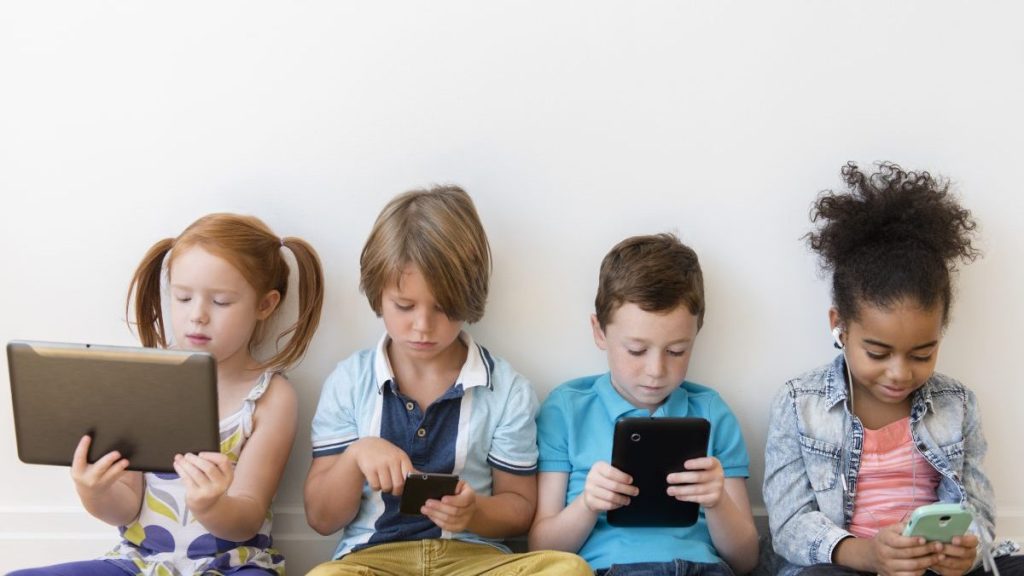Social media has become an almost-important part of everyone’s life, especially kids. Be it tweens or teens, most children spend hours on social media, using the platforms to connect with their friends or post content. However, as parents, we all know excessive use of social media can have detrimental effects on kids’ mental health. It can also hamper their physical development. Children tend to get less and less active as they spend more time on their gadgets. In light of this, the government of Australia has taken a historic step that many parents highly appreciate. The Australian government has passed a bill to ban social media for children under 16, effective in 12 months.
Australia becomes first country to pass a bill banning social media for kids under 16
Social media may have its perks. However, there are several downsides to it as well, especially when it comes to kids. They tend to share way too much of their private lives on the platforms or get influenced almost immediately. It not only hampers their decision-making skills but also makes them easy targets for online bullying and prying. Moreover, it hampers their social skills and personal relationships. Thus, it is no surprise many are left concerned about their kids’ usage of social media.
While some countries are working on tackling this issue, Australia has made a bold decision that is being applauded by parents around the world. According to Reuters, the Australian government has now banned kids under 16 from using social media platforms. The move comes after its parliament passed the historic bill on Thursday, November 28. The world’s strictest law targeting Big Tech has brought much relief to parents. They finally see some hope to help regulate their children’s usage of social media platforms.
The ban, which will not take effect for at least 12 months, won’t allow minors to use various popular social media platforms, like Facebook, TikTok, Instagram, Snapchat, Reddit, and X (formerly Twitter). If not followed through, these tech giants will be liable for fines of about 50 million Australian dollars (49.5 million Australian dollars, to be precise, which is about $32 million) for failing to prevent the younger generation from accessing the platforms.
On Wednesday, the House of Representatives approved the legislation by 102 votes to 13. The following day, the bill was passed by the Senate with 34 votes to 19. Australia’s prime minister, Anthony Albanese, is part of the crowd that is really pleased with this move. The ban protects children from the “harms” of social media and supports the parents who were worried about the same. “We want our kids to have a childhood and parents to know we have their backs,” Albanese stated. He noted that the bill will now position “Australia to lead the world” in the safety of young people.
Australia gives social media platforms a year to figure things out before they are fined
With this bill, the government of Australia has now given the social media platforms one year to figure out how they can implement the ban before they get fined millions. Discussing the ban, Albanese further elaborated, “Platforms now have a social responsibility to ensure the safety of our kids is a priority for them.”
However, not everyone is happy with the bill. Meta Platforms, which owns Instagram and Facebook, said that it was “concerned” about the process. The tech giant blamed the government for having “rushed the legislation through while failing to properly consider the evidence, what industry already does to ensure age-appropriate experiences, and the voices of young people.”
The spokesperson added, “The task now turns to ensuring there is productive consultation on all rules associated with the Bill to ensure a technically feasible outcome.” They also emphasized that they need to ensure the burden isn’t shifted to moms and dads.
Snapchat’s parent company, Snap, has also raised concerns. However, the company said that they will “engage closely with the Government and the eSafety Commissioner during the 12-month implementation period.” They are aiming to work on a solution that provides the user with a balance of “privacy, safety, and practicality.”
The bill has also garnered mixed reactions from parents. Most welcomed the bold move with open arms. They are happy that their kids will no longer be hooked to their screens and doomscroll through social media. However, some parents are looking forward to seeing how the ban will be implemented and if it will be done properly. Only time will tell how this landmark decision will impact the children and their overall development.
